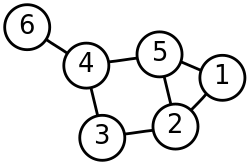Discrete mathematics is the study of mathematical structures that are fundamentally discrete rather than continuous. Real numbers and rational numbers have the property that between any two numbers a third can be found, and consequently these numbers vary "smoothly". The objects generally studied in discrete mathematics – such as integers, graphs, and statements in logic – do not vary smoothly in this way, but have distinct, separated values. Discrete mathematics therefore excludes topics in "continuous mathematics" such as calculus and analysis. Alternatively, discrete mathematics can be characterised as the branch of mathematics dealing with countable sets (including rational numbers but not real numbers), but there is no exact, universally agreed, definition of the term.It is more what is excluded (the notions of a continuously varying quantity and related notions) than what is included that describes discrete mathematics. The term finite mathematics is sometimes applied to parts of the field of discrete mathematics, particularly areas relevant to business.
Discrete mathematics has become popular in recent decades because of its applications to computer science. Concepts and notations from discrete mathematics are useful in studying and describing objects and problems in computer algorithms and programming languages, and have applications in cryptography, automated theorem proving, and software development.

